
Anegada Beaches: The Hidden Paradise of the British Virgin Islands
Anegada, the northernmost of the British Virgin Islands, is a hidden gem known for its pristine beaches and untouched natural beauty. Unlike its volcanic neighbors, Anegada is a flat coral island, offering visitors a unique landscape filled with white sandy shores and crystal-clear turquoise waters. The island is surrounded by the Horseshoe Reef, which is the fourth largest barrier reef in the world, making it a snorkeling and diving paradise. Cow Wreck Beach, Loblolly Bay, and Flash of Beauty are some of the most popular beaches on Anegada. Each beach has its own charm, from the soft, powdery sand of Cow Wreck Beach to the vibrant coral reefs near Loblolly Bay where colorful marine life abounds. Flash of Beauty, with its unspoiled scenery and tranquility, offers a perfect escape for those seeking solitude. Anegada is also famous for its delicious local cuisine, particularly the Anegada lobster, which is a must-try for any visitor. The island's laid-back atmosphere, friendly locals, and the absence of large crowds make it an idyllic destination for those looking to unwind and reconnect with nature. Whether you're exploring the reefs, lounging on the beach, or savoring the local flavors, Anegada promises an unforgettable experience.
Local tips in Anegada Beaches
- Visit during the lobster season (November to April) for the freshest seafood.
- Rent a scooter or a bike to explore the island at your own pace.
- Bring your snorkeling gear to fully enjoy the underwater beauty of Horseshoe Reef.
- Don't miss sunset at Cow Wreck Beach for a stunning view.
- Carry cash as some local establishments may not accept credit cards.
Anegada Beaches: The Hidden Paradise of the British Virgin Islands
Anegada, the northernmost of the British Virgin Islands, is a hidden gem known for its pristine beaches and untouched natural beauty. Unlike its volcanic neighbors, Anegada is a flat coral island, offering visitors a unique landscape filled with white sandy shores and crystal-clear turquoise waters. The island is surrounded by the Horseshoe Reef, which is the fourth largest barrier reef in the world, making it a snorkeling and diving paradise. Cow Wreck Beach, Loblolly Bay, and Flash of Beauty are some of the most popular beaches on Anegada. Each beach has its own charm, from the soft, powdery sand of Cow Wreck Beach to the vibrant coral reefs near Loblolly Bay where colorful marine life abounds. Flash of Beauty, with its unspoiled scenery and tranquility, offers a perfect escape for those seeking solitude. Anegada is also famous for its delicious local cuisine, particularly the Anegada lobster, which is a must-try for any visitor. The island's laid-back atmosphere, friendly locals, and the absence of large crowds make it an idyllic destination for those looking to unwind and reconnect with nature. Whether you're exploring the reefs, lounging on the beach, or savoring the local flavors, Anegada promises an unforgettable experience.
When is the best time to go to Anegada Beaches?
Iconic landmarks you can’t miss
The Baths
Explore the geological wonders of The Baths in Virgin Gorda: a Caribbean playground of granite boulders, hidden grottos, and pristine beaches.
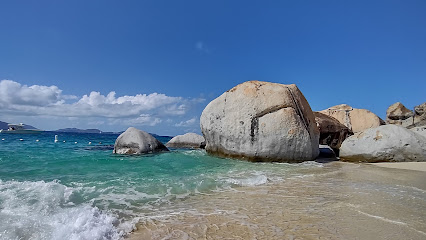
Cyril B. Romney Tortola Pier Park
Explore Cyril B. Romney Tortola Pier Park: A hub of culture, shopping, and breathtaking beauty in the British Virgin Islands.
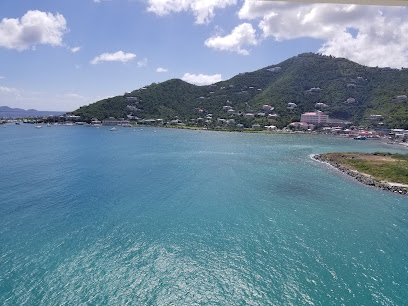
Scrub Island Resort, Spa & Marina
Escape to Scrub Island: A luxurious private island resort in the British Virgin Islands with pristine beaches, a world-class marina, and ultimate relaxation.
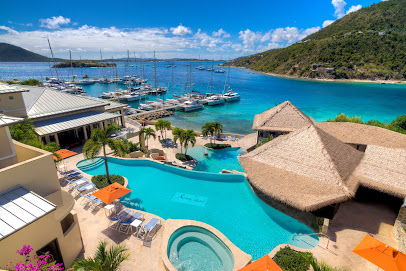
Cooper Island Beach Club
Escape to Cooper Island Beach Club: a sustainable Caribbean paradise with pristine beaches, eco-friendly accommodations, and unforgettable dining experiences.

Long Bay Beach Resort
Experience barefoot luxury at Long Bay Beach Resort in Tortola, offering pristine beaches, elegant accommodations, and Caribbean charm.
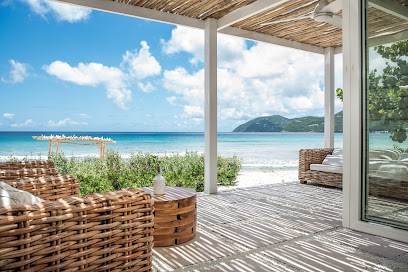
Rosewood Little Dix Bay
Experience unparalleled luxury and natural beauty at Rosewood Little Dix Bay, a premier resort in the British Virgin Islands offering relaxation and adventure.

Saba Rock Resort
Experience barefoot luxury on a vibrant island paradise in the heart of the British Virgin Islands' North Sound.
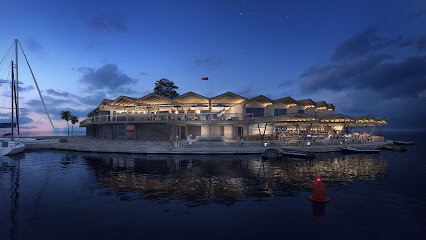
Devil's Bay National Park
Experience the breathtaking beauty of Devil's Bay National Park with its stunning beaches and unique rock formations in the British Virgin Islands.
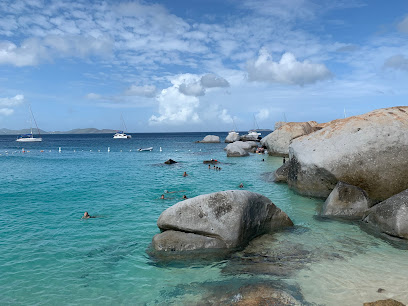
Smuggler's Cove
Discover Smuggler's Cove in Tortola: a secluded beach paradise with pristine sands, tranquil waters, and a laid-back Caribbean vibe.
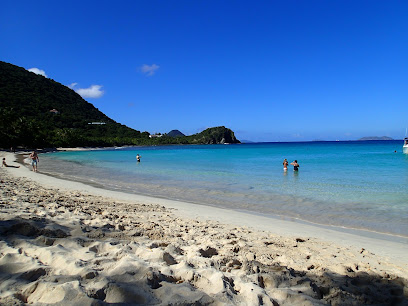
Anegada Beach Club
Experience barefoot luxury at Anegada Beach Club: beachfront palapas, water sports, exquisite dining, and serene relaxation on Anegada's pristine shores.

Wyndham Tortola BVI Lambert Beach Resort
Escape to Wyndham Tortola BVI Lambert Beach Resort: beachfront bliss, modern amenities, and tranquil Caribbean vibes await!

Sebastian's On The Beach
Beachfront bliss in Tortola's Apple Bay: Relax, surf, and savor Caribbean flavors at Sebastian's On The Beach.
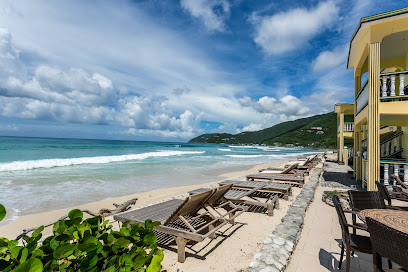
Cane Garden Bay
Discover Cane Garden Bay, Tortola: a stunning beach with tranquil waters, vibrant culture, and unforgettable Caribbean sunsets.
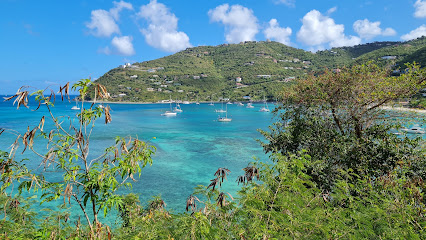
J.R. O'Neal Botanical Gardens
Discover the breathtaking J.R. O'Neal Botanical Gardens, a serene paradise showcasing the rich biodiversity of the British Virgin Islands.
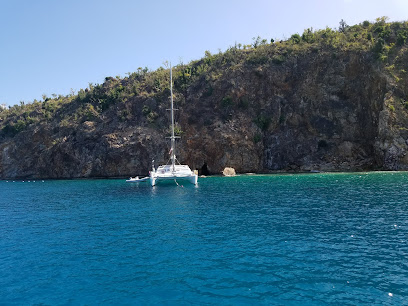
Quitos Gazebo & Luxury Inn
Experience beachfront luxury at Cane Garden Bay Beach Hotel, Tortola, offering tranquil relaxation and vibrant island vibes.
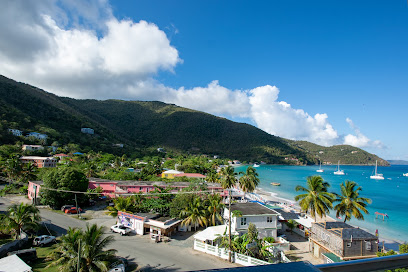
Unmissable attractions to see
Smuggler's Cove
Discover Tortola's best-kept secret: a secluded beach with pristine sands, turquoise waters, and a tranquil escape from the crowds.
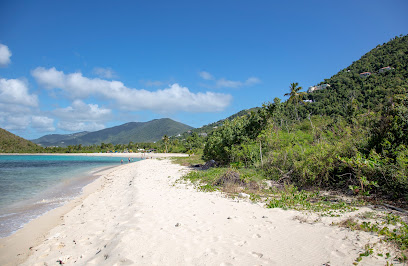
Anegada
Discover Anegada: Pristine beaches, vibrant reefs, and unique wildlife await on this tranquil coral island in the British Virgin Islands.
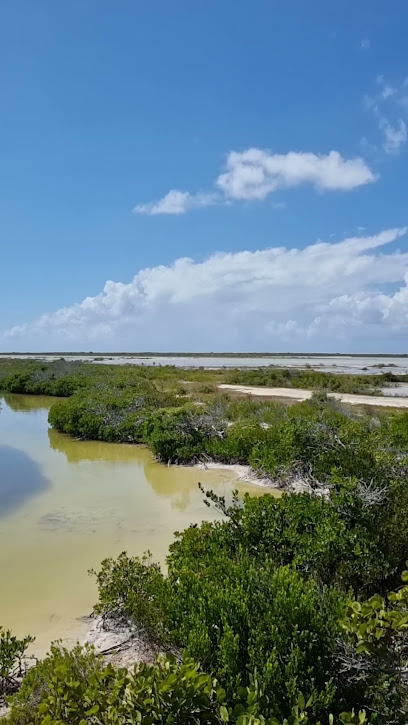
Sage Mountain National Park
Discover panoramic views and lush trails at Tortola's Sage Mountain National Park, a Caribbean nature escape.
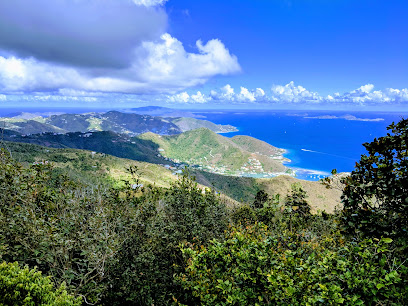
Anegada Rock Iguana Headstart Facility
Witness conservation in action at the Anegada Rock Iguana Headstart Facility, dedicated to saving this unique and endangered iguana species.
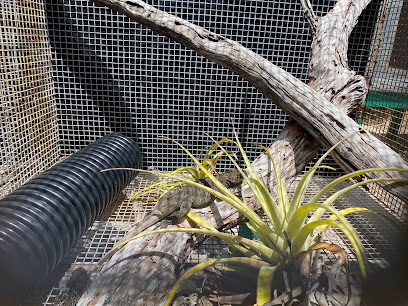
White Bay
Discover White Bay, Jost Van Dyke: Pristine sands, turquoise waters, and the legendary Soggy Dollar Bar await in this Caribbean paradise.
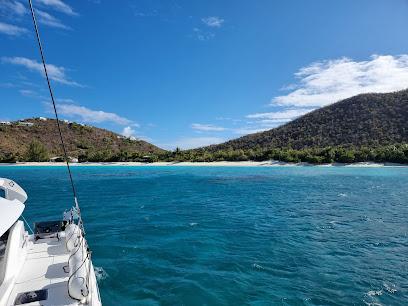
Loblolly High Point
Discover breathtaking panoramic views from Loblolly High Point, a serene natural escape in Anegada, British Virgin Islands.
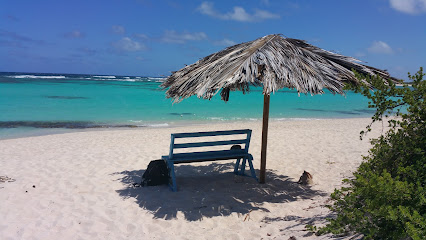
Belmont Point
Discover Belmont Point in the British Virgin Islands: Serene coastal views, tranquil atmosphere, and vibrant natural beauty await!
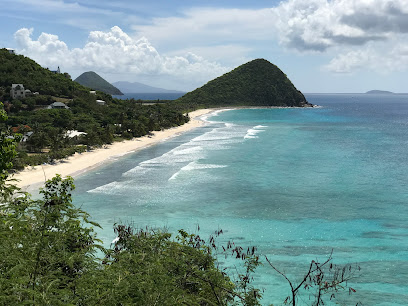
Essential places to dine
Anegada Beach Club
Experience blissful serenity at Anegada Beach Club - your tropical haven in the British Virgin Islands with stunning beaches and exceptional service.

Cow Wreck
Discover Cow Wreck: A stunning beachfront restaurant in the British Virgin Islands offering mouthwatering local cuisine amidst breathtaking ocean views.
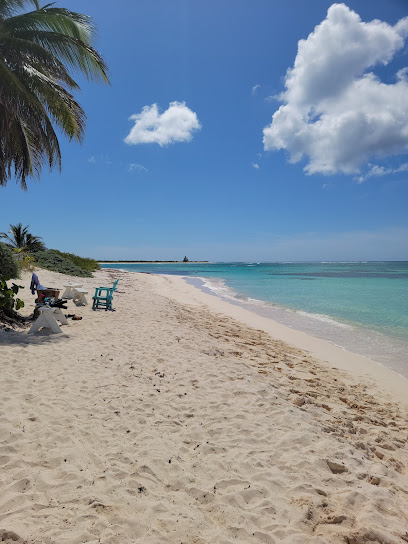
Potters Bar and Lobster House
Experience fresh seafood delights at Potters Bar and Lobster House in the stunning British Virgin Islands - where every meal is a taste of paradise.
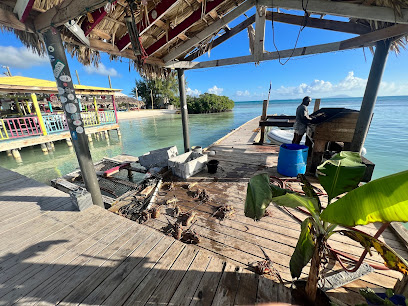
The Wonky Dog
Experience delightful seafood and island vibes at The Wonky Dog in Anegada - where every meal is a celebration!
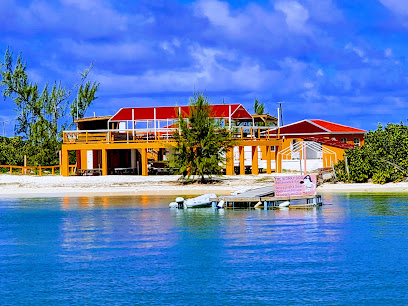
Anegada Reef Hotel
Discover tranquility at Anegada Reef Hotel - your gateway to paradise in the British Virgin Islands.

Big Bamboo Beach Bar & Restaurant
Discover the ultimate beachside dining experience at Big Bamboo Beach Bar & Restaurant in Anegada – where delicious food meets stunning ocean views.
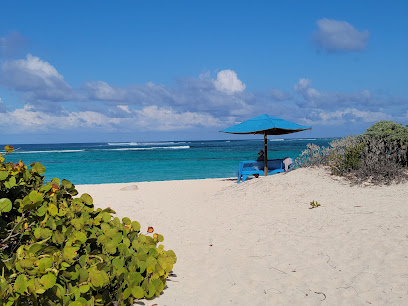
Lobster Trap
Experience exquisite grill cuisine at Lobster Trap in the British Virgin Islands – where fresh seafood meets breathtaking island views.
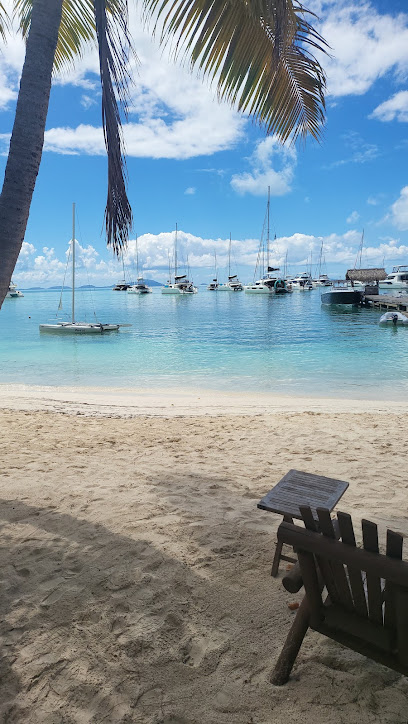
Tipsy by Ann, Anegada BVI
Experience fresh grilled delights at Tipsy by Ann, where Caribbean flavors meet breathtaking beach views in Anegada BVI.
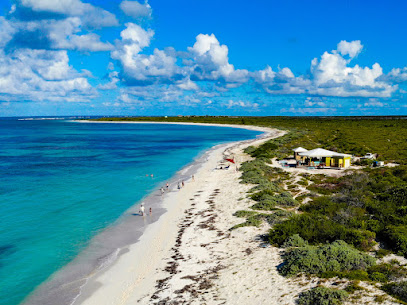
Sid's Pomato Point Restaurant
Experience authentic Caribbean flavors at Sid's Pomato Point Restaurant on Anegada - where great food meets stunning ocean views.
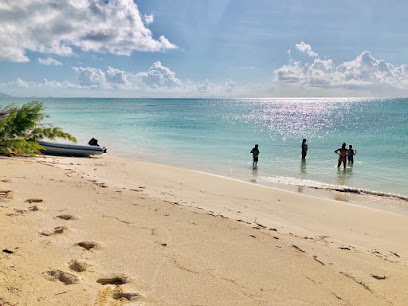
Flash Of Beauty
Discover the flavors of paradise at Flash Of Beauty, where Caribbean cuisine meets breathtaking views in The Settlement.
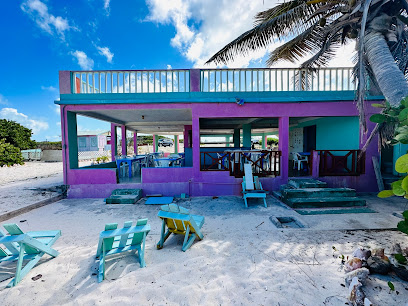
Pink Flamingo Restaurant & Bar
Experience delightful Caribbean cuisine at Pink Flamingo Restaurant & Bar in Anegada - where every meal is a celebration of local flavors.
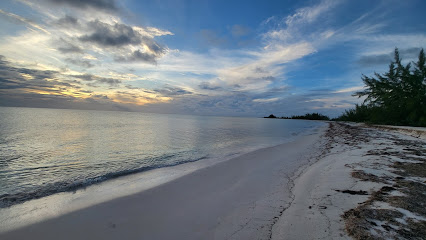
Whispering Pines
Discover culinary delights at Whispering Pines in The Settlement, where local flavors meet exquisite dining in the heart of the British Virgin Islands.
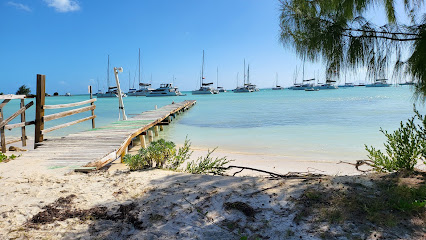
Markets, malls and hidden boutiques
Anegada Beach Club
Discover the tranquil beauty of Anegada Beach Club, a Caribbean paradise with stunning beaches, vibrant culture, and endless adventures.

Cow Wreck
Experience the essence of Caribbean dining at Cow Wreck, where fresh seafood meets stunning beachfront views in Anegada.
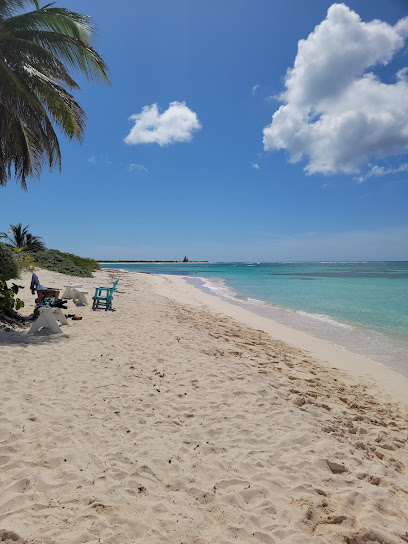
Anegada Reef Hotel
Discover the serene beauty and vibrant marine life at Anegada Reef Hotel, the perfect Caribbean escape for relaxation and adventure.

Big Bamboo Beach Bar & Restaurant
Discover the flavors of the Caribbean at Big Bamboo Beach Bar & Restaurant, where fresh cuisine meets breathtaking views in the British Virgin Islands.
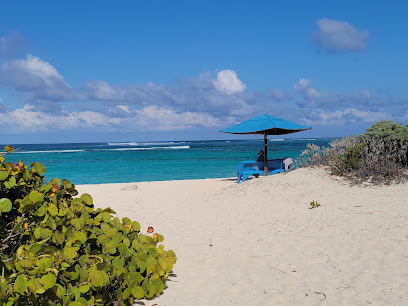
Tipsy by Ann, Anegada BVI
Experience the flavors of the Caribbean at Tipsy by Ann, Anegada BVI's premier grill and bar with stunning beach views and a vibrant atmosphere.
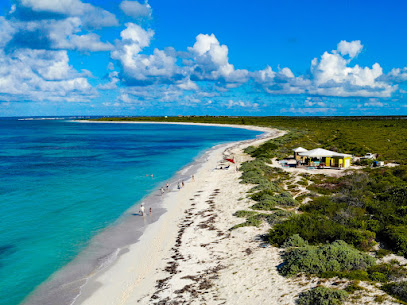
Flash Of Beauty
Savor the vibrant flavors of the Caribbean at Flash Of Beauty, where every meal is a delightful journey through island cuisine.
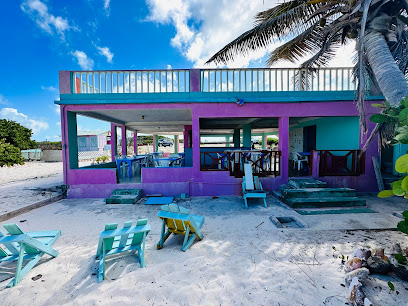
Island Department Store
Explore the Island Department Store for a unique shopping experience in Road Town, featuring local crafts, home goods, and more in the British Virgin Islands.
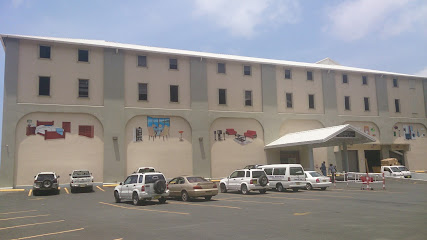
Crafts Alive Village
Explore the vibrant Crafts Alive Village in Road Town for unique souvenirs and a taste of the British Virgin Islands' rich artistic culture.
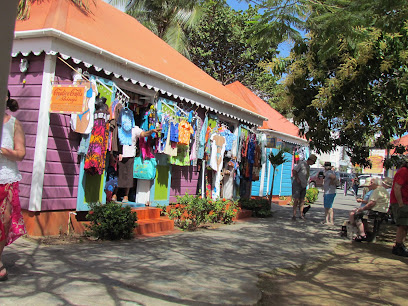
Conch Island
Explore Conch Island: A picturesque paradise in the British Virgin Islands, brimming with stunning landscapes and vibrant marine life.
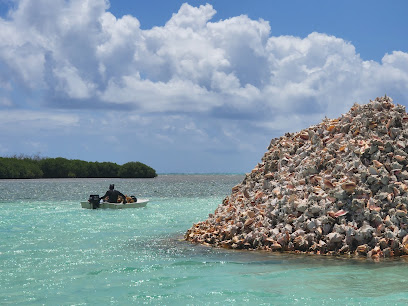
Loblolly Beach Cottages- Anegada
Discover the serene beauty of Loblolly Beach Cottages in Anegada, where relaxation meets adventure in the heart of the Caribbean.
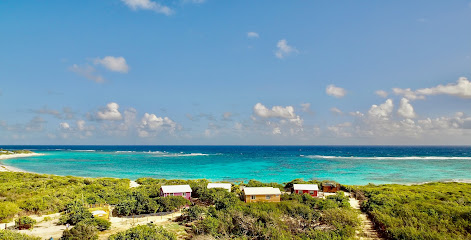
Anegada
Discover the untouched beauty of Anegada, a tranquil beach paradise in the British Virgin Islands known for its stunning shores and vibrant marine life.

Ann's Giftshop
Discover unique souvenirs and island treasures at Ann's Giftshop on the stunning Cow Wreck Beach, British Virgin Islands.
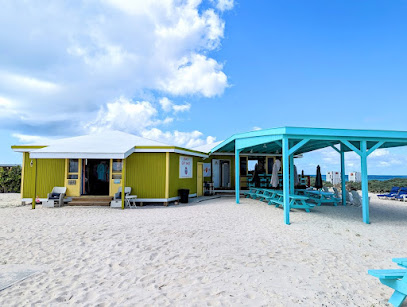
SNR Variety Store
Discover the local flavors and essentials at SNR Variety Store, your go-to supermarket in The Settlement, British Virgin Islands.
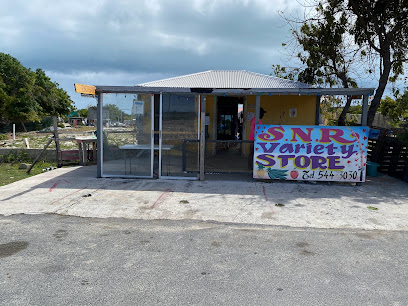
Latitude 18º
Explore Latitude 18º for a unique shopping experience in Road Town, British Virgin Islands, offering fashion that reflects local culture and style.

Hidden Treasure
Experience the serene beauty of Hidden Treasure Cottage on Cow Wreck Beach, Anegada, where relaxation meets adventure in the British Virgin Islands.
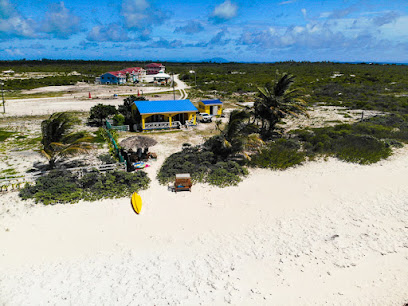
Essential bars & hidden hideouts
Anegada Beach Club
Discover the serene beauty of Anegada Beach Club, where turquoise waters meet white sandy shores in the heart of the British Virgin Islands.

Cow Wreck
Discover the flavors of the Caribbean at Cow Wreck, a beachside restaurant offering fresh seafood and tropical delights in the British Virgin Islands.
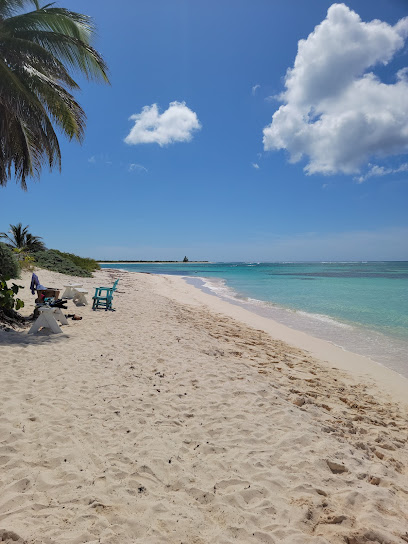
Potters Bar and Lobster House
Indulge in the freshest seafood at Potters Bar and Lobster House, a culinary treasure in the British Virgin Islands offering stunning views and vibrant atmosphere.
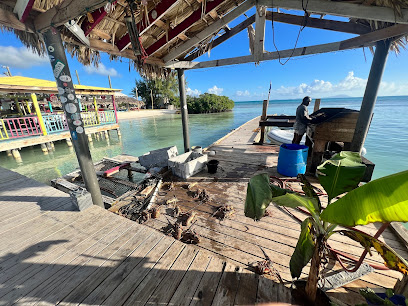
The Wonky Dog
Experience the vibrant flavors of the British Virgin Islands at The Wonky Dog, a culinary gem in Setting Point Anegada, perfect for any visitor.
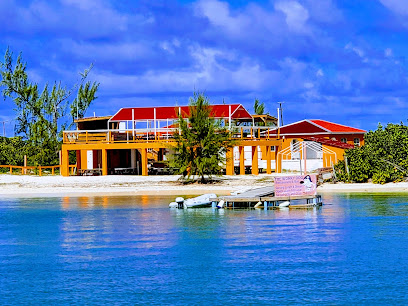
Big Bamboo Beach Bar & Restaurant
Experience Caribbean flavors and stunning beach views at Big Bamboo Beach Bar & Restaurant in Anegada, British Virgin Islands.
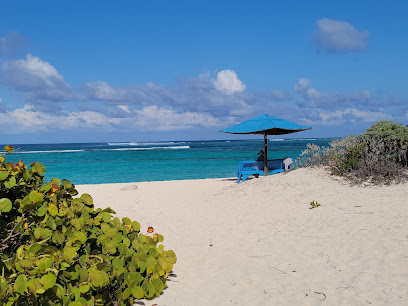
Lobster Trap
Discover Lobster Trap in the British Virgin Islands, where fresh seafood delights meet stunning ocean views for a memorable dining experience.
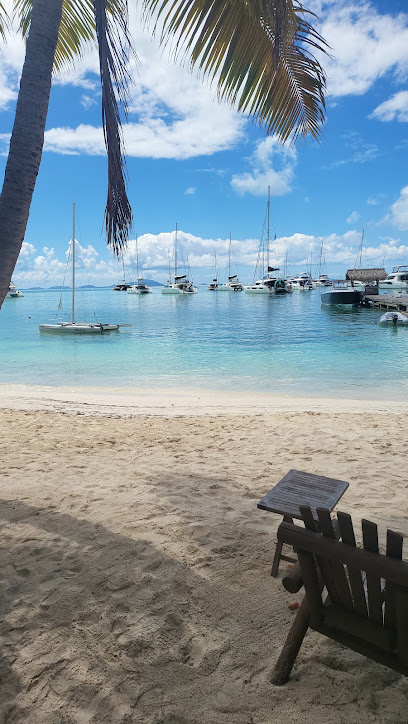
Tipsy by Ann, Anegada BVI
Experience the best of island dining at Tipsy by Ann in Anegada, BVI, where delicious grilled dishes meet stunning beach views.
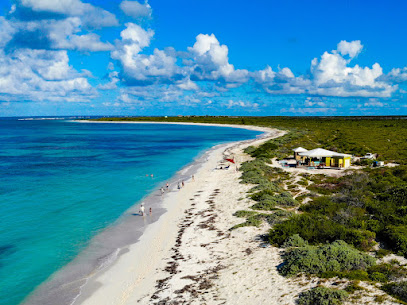
Sid's Pomato Point Restaurant
Experience the best of Anegada at Sid's Pomato Point Restaurant, where Caribbean flavors meet stunning beach views.
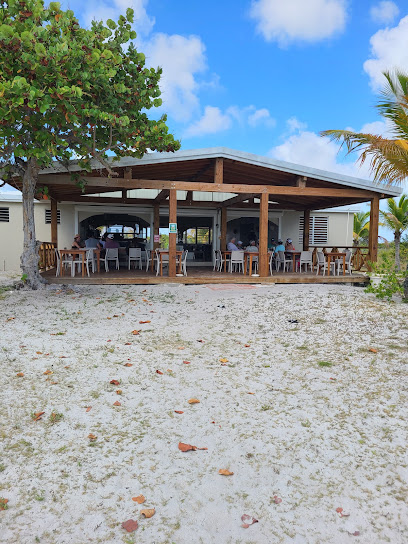
Flash Of Beauty
Discover the flavors of the Caribbean at Flash of Beauty, a top dining destination in The Settlement, British Virgin Islands, with stunning beach views.
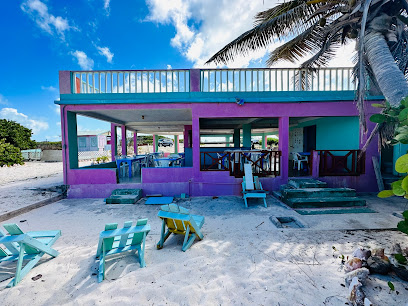
Pink Flamingo Restaurant & Bar
Discover the flavors of the Caribbean at Pink Flamingo Restaurant & Bar, where fresh seafood and stunning views await you.
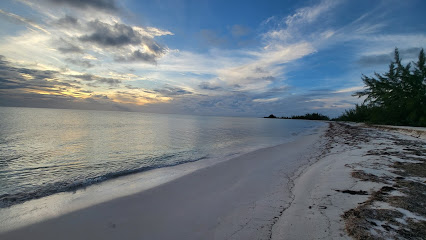
Whispering Pines
Discover the taste of the Caribbean at Whispering Pines, where every meal is a celebration of local flavors and stunning views.
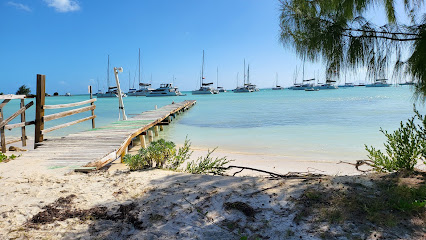
Local Phrases about Anegada Beaches
-
- HelloGood day
[gud dey] - GoodbyeGoodbye
[gud-bye] - YesYeah
[yeh] - NoNo
[no] - Please/You're welcomePlease
[pleez] - Thank youThank you
[thank yu] - Excuse me/SorryExcuse me
[ek-skyooz mee] - How are you?How you doin'?
[hao yu do-in] - Fine. And you?I good. How you?
[ai gud. hao yu?] - Do you speak English?You speak English?
[yu speek ing-glish?] - I don't understandI don't get it
[ai dohnt get it]
- HelloGood day
-
- I'd like to see the menu, pleaseI want to see menu, please
[ai want tu si menu, pleez] - I don't eat meatI no eat meat
[ai noh eet meet] - Cheers!Cheers!
[cheers] - I would like to pay, pleaseI want to pay, please
[ai want tu pey, pleez]
- I'd like to see the menu, pleaseI want to see menu, please
-
- Help!Help!
[help] - Go away!Go away!
[go away] - Call the Police!Call Police!
[kol puh-lease] - Call a doctor!Call doctor!
[kol dohk-tor] - I'm lostI lost
[ai lost] - I'm illI sick
[ai sik]
- Help!Help!
-
- I'd like to buy...I want to buy...
[ai want tu bai] - I'm just lookingI just looking
[ai jost look-ing] - How much is it?How much it cost?
[hao moch it kost?] - That's too expensiveThat too much money
[dat too moch mun-nee] - Can you lower the price?You can drop price?
[yu kan drop prais?]
- I'd like to buy...I want to buy...
-
- What time is it?What time now?
[wot taim now] - It's one o'clockOne o'clock
[wan o-klok] - Half past (10)Ten thirty
[ten thur-tee] - MorningMorning
[mawr-nin] - AfternoonAfternoon
[af-ter-noon] - EveningEvening
[ee-ven-ing] - YesterdayYesterday
[yes-ter-day] - TodayToday
[to-day] - TomorrowTomorrow
[toh-mor-row] - 1One
[wan] - 2Two
[too] - 3Three
[three] - 4Four
[for] - 5Five
[fiv] - 6Six
[siks] - 7Seven
[sev-en] - 8Eight
[ate] - 9Nine
[nine] - 10Ten
[ten]
- What time is it?What time now?
-
- Where's a/the...?Where ...?
[wher ...?] - What's the address?What address?
[wot ad-dress?] - Can you show me (on the map)?You show me (on map)?
[yu show mi (on map)?] - When's the next (bus)?Next (bus) when?
[nekst (bus) wen?] - A ticket (to ....)Ticket (to ....)
[ti-ket (tu ....)]
- Where's a/the...?Where ...?
History of Anegada Beaches
-
Long before European explorers set their sights on the Caribbean, Anegada was home to the Arawak and Carib indigenous people. These early inhabitants left behind evidence of their presence in the form of pottery shards and ancient tools. The island provided a relatively safe haven from the more turbulent waters surrounding the larger islands, and its rich marine life was a valuable resource for these early communities.
-
Anegada was first documented by European explorers in the late 15th century. Christopher Columbus is often credited with discovering the Virgin Islands in 1493 during his second voyage to the New World. However, it wasn't until the 17th century that the island began to see more permanent European settlements. The British laid claim to Anegada along with the rest of the Virgin Islands, and the island's strategic location made it a point of interest for colonial expansion.
-
The waters surrounding Anegada are treacherous, with extensive coral reefs that have claimed many ships over the centuries. This danger made the island a hotspot for pirates in the 17th and 18th centuries. Famous pirates like Blackbeard and Calico Jack are rumored to have used Anegada as a hideout. The island's history is marred with numerous shipwrecks, and the remains of these vessels can still be explored today, making it a fascinating destination for divers.
-
One of the most notable shipwrecks in Anegada's history is that of the HMS Astrea, a British Royal Navy vessel that ran aground on the island's reefs in 1808. The wreck of the HMS Astrea is one of the many that contribute to Anegada's nickname, 'The Drowned Island.' The event highlighted the dangers of navigating these waters and led to the construction of several lighthouses in the region to aid in maritime navigation.
-
Salt mining became a significant industry on Anegada in the 18th and 19th centuries. The island's salt ponds provided a valuable resource for the preservation of food, which was crucial for long sea voyages and trade. At its peak, the salt industry attracted laborers from surrounding islands and played a crucial role in Anegada's economy. The remnants of the old salt ponds can still be seen today, offering a glimpse into the island's industrious past.
-
In the 20th century, Anegada began to transition from a primarily agrarian and maritime economy to one focused on tourism. The island's pristine beaches, clear waters, and unique coral reefs have made it a popular destination for travelers seeking a tranquil getaway. The development of tourist facilities and services has transformed Anegada into a key destination within the British Virgin Islands, while efforts have been made to preserve its natural beauty and historical sites.
Anegada Beaches Essentials
-
Anegada is one of the British Virgin Islands and is accessible by both air and sea. The nearest international airport is Terrance B. Lettsome International Airport on Beef Island. From there, you can take a short flight via charter or scheduled air service to Anegada. Alternatively, you can reach Anegada by ferry or private boat from Tortola or other nearby islands. The ferry service typically operates several times a week and offers a scenic journey through the Caribbean waters.
-
Once on Anegada, transportation options are limited but sufficient for the island’s size. Bicycles and scooters are popular and can be rented for short-term use. Taxis are also available and can be arranged in advance or found at key locations such as the ferry dock. Renting a jeep or car is another option, particularly if you plan to explore the more remote areas of the island. However, keep in mind that the island is small, and many visitors find that walking or biking is sufficient.
-
The official currency is the US Dollar (USD). Credit cards are accepted at most hotels, restaurants, and shops, but it is advisable to carry some cash as smaller vendors and local markets may not accept cards. ATMs are available but can be limited, so withdrawing sufficient cash before arriving on the island is recommended.
-
Anegada is generally safe for tourists, with low crime rates. However, it is always wise to take standard precautions such as not leaving valuables unattended and being cautious when walking alone at night. There are no specific areas or neighborhoods with high crime rates targeting tourists, but it's always best to stay vigilant and aware of your surroundings.
-
In case of an emergency, dial 999 or 911 for immediate assistance. Medical services are limited on Anegada, so it is crucial to have travel insurance that covers medical emergencies. The island has a small health clinic, but for serious medical issues, you may need to be transported to Tortola or another island. Keep a list of emergency contacts and the location of the nearest medical facilities.
-
Fashion: Do wear comfortable, casual clothing suitable for a beach environment. Don't wear overly formal or revealing clothing unless you are at the beach. Religion: Do respect local customs and traditions. While Anegada is not particularly religious, showing respect for any local practices is always appreciated. Public Transport: Do be patient as public transport options are limited. Don't expect the same level of service as in larger cities. Greetings: Do greet locals with a friendly 'Hello' or 'Good day.' A handshake is also acceptable. Eating & Drinking: Do try local seafood delicacies such as lobster and conch. Don't refuse food offerings, as it is considered impolite.
-
To experience Anegada like a local, visit the local markets and eat at small, family-owned restaurants where you can enjoy fresh seafood and traditional dishes. Engage with local fishermen and artisans, who are often willing to share stories and tips about the island. Don't miss the chance to explore the unique flora and fauna, including the famous Anegada flamingos and the extensive coral reefs. Renting a bike or scooter is a great way to see the island at your own pace.
Trending Landmarks in Anegada Beaches
-
The Baths
-
Cyril B. Romney Tortola Pier Park
-
Scrub Island Resort, Spa & Marina
-
Cooper Island Beach Club
-
Long Bay Beach Resort
-
Rosewood Little Dix Bay
-
Saba Rock Resort
-
Devil's Bay National Park
-
Smuggler's Cove
-
Anegada Beach Club
-
Wyndham Tortola BVI Lambert Beach Resort
-
Sebastian's On The Beach
-
Cane Garden Bay
-
J.R. O'Neal Botanical Gardens
-
Quitos Gazebo & Luxury Inn
Nearby Cities to Anegada Beaches
-
Things To Do in Virgin Gorda
-
Things To Do in Spanish Town
-
Things To Do in The Valley
-
Things To Do in Road Town
-
Things To Do in Tortola
-
Things To Do in West End
-
Things To Do in Jost Van Dyke
-
Things To Do in Culebra
-
Things To Do in West End Village
-
Things To Do in Long Bay Village
-
Things To Do in Vieques
-
Things To Do in Sandy Ground Village
-
Things To Do in South Hill
-
Things To Do in Blowing Point Village
-
Things To Do in North Hill Village






